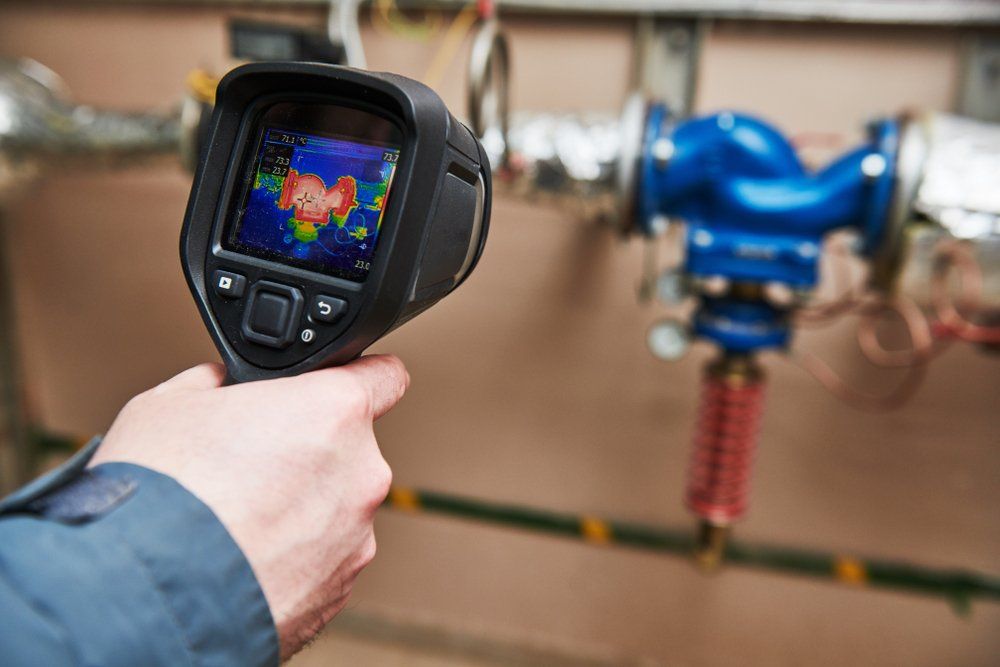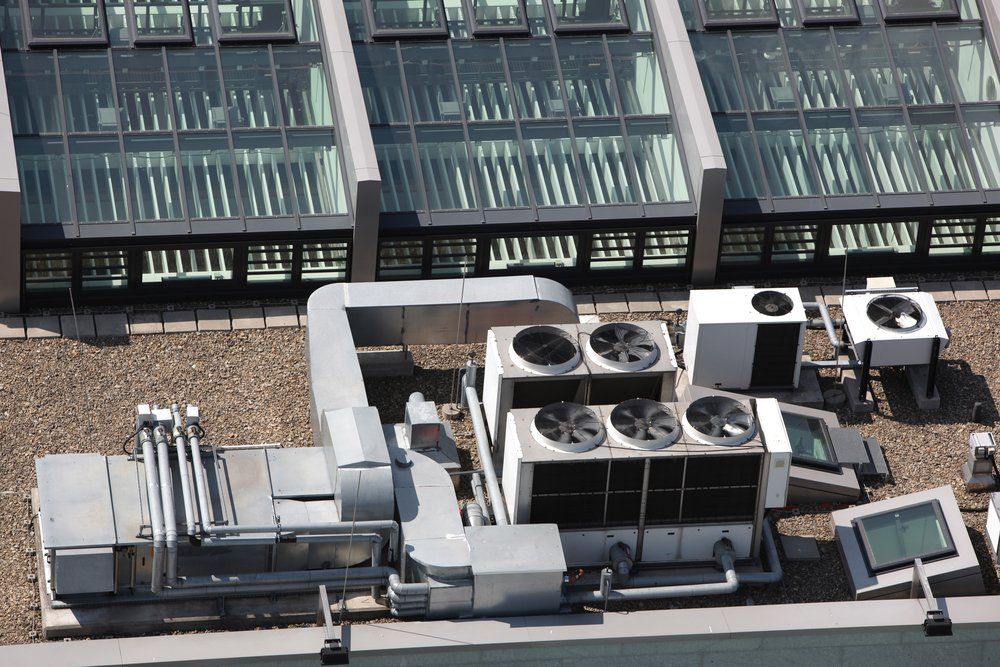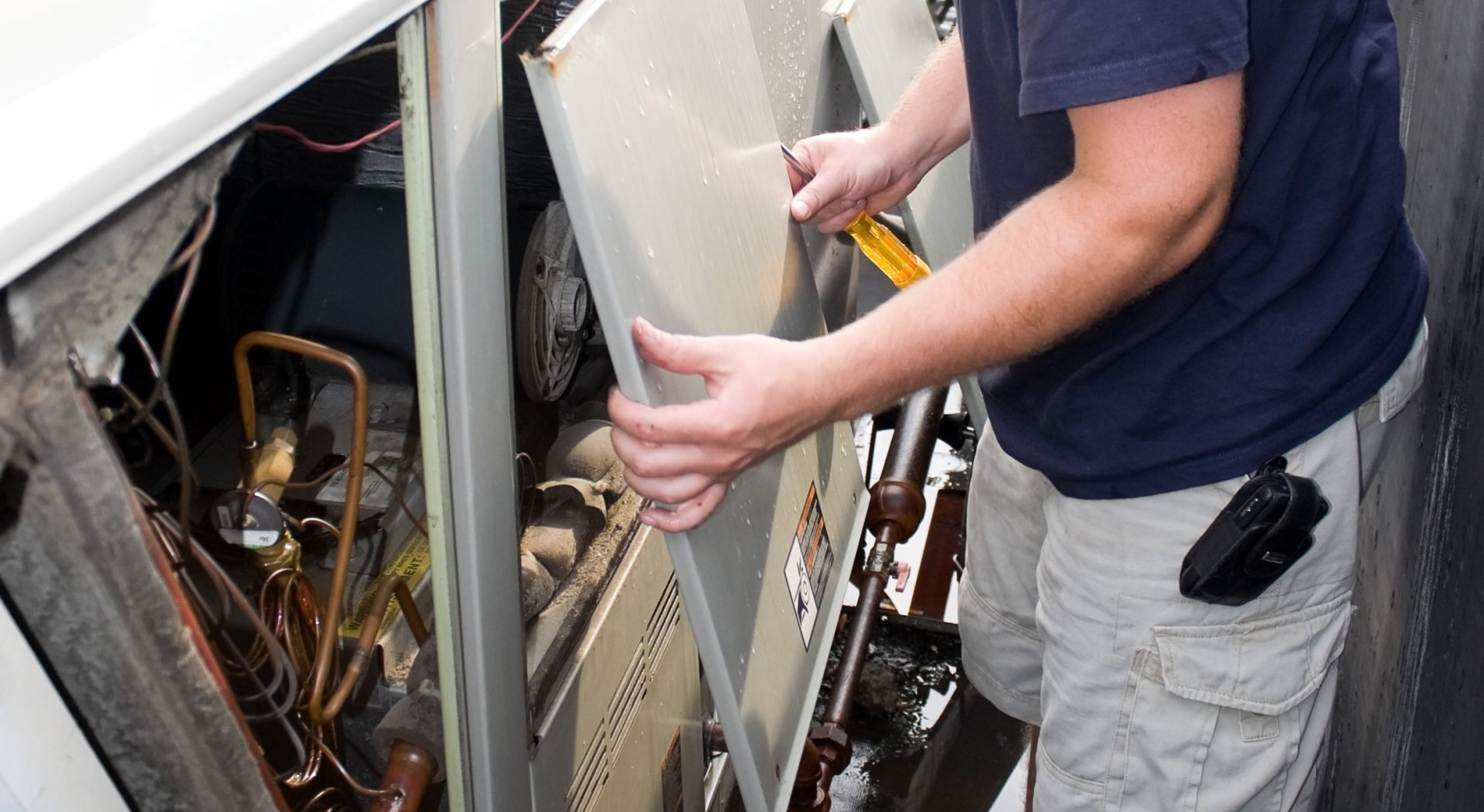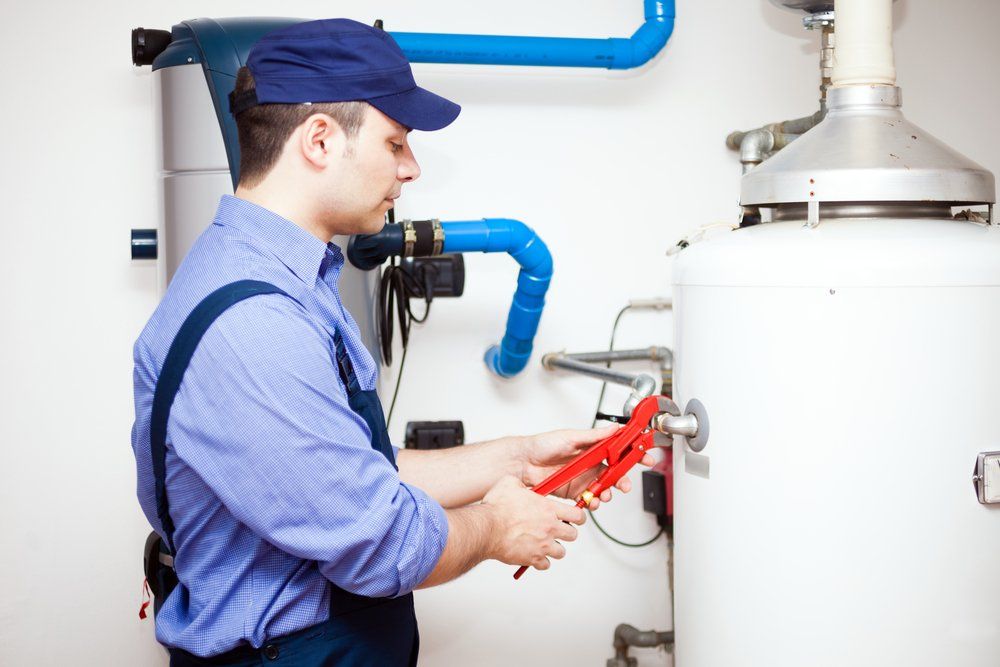How to Improve Indoor Air Quality in your Home
How to Improve Indoor Air Quality in your Home
Indoor air pollution is a serious problem that often goes unnoticed. Poor indoor air quality can cause a wide range of health problems, from minor irritation to more serious conditions like asthma and cancer. While you can’t completely eliminate pollutants from your home, there are some things you can do to improve the air quality and make your home a healthier place to live. Here are four tips for improving indoor air quality in your home.
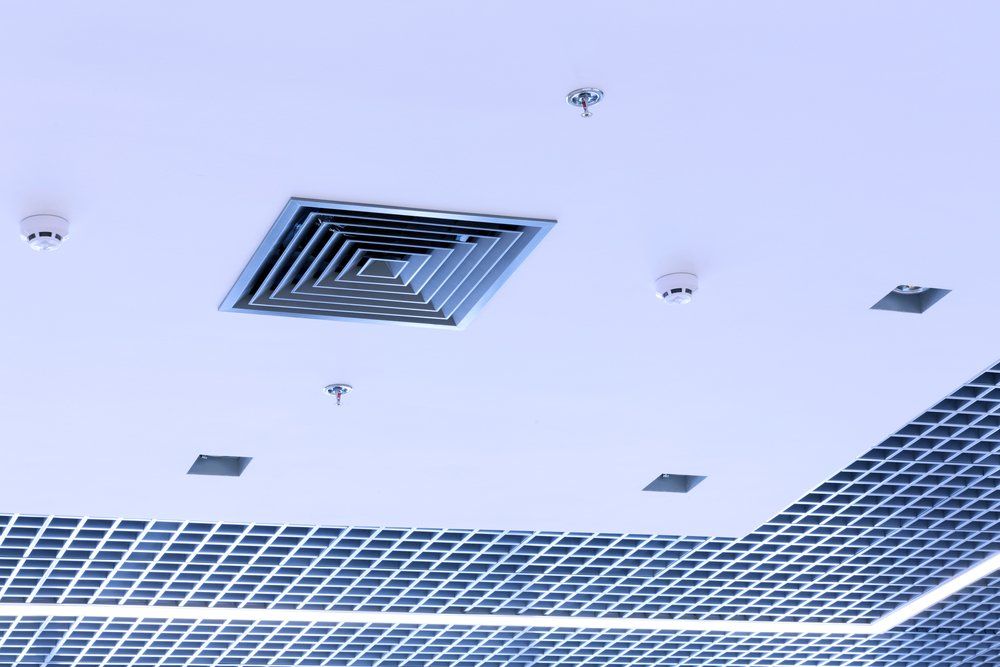
Identify the Sources of Indoor Air Pollution in your Home
The air you breathe at home can be dirty and full of toxins. This is because many chemical substances are released by furniture, fabrics, or other materials when they get wet with sweat during hot weather conditions for example - which makes them even more harmful than before!
One of the best ways to improve your indoor air quality is to identify and address the sources of indoor air pollution in your home. Some of the most common sources of indoor air pollution include:
- Dust
- Pet hair and dander
- Mold
- Cigarette smoke
- Radon
It is not just a problem for people with respiratory issues. It can cause serious health problems in anyone who is exposed to it, especially if they're children or older adults! The main sources of indoor Air Pollution are furniture that's been sitting around too long (like old chairs) as well as dust bunnies from lack of cleaning where you see their tracks all over the place - this could be anywhere behind an entertainment center, under cabinets near your kitchen sink etcetera. Another big one would include animal dander which leads me right back to my original point: without proper ventilation.
Reducing Indoor Air Pollution
The air inside your home is much cleaner than the outside, but that doesn't mean it's always safe to breathe. You might be surprised at just how many indoor pollutants are present in spite of all this cleanliness! Indoor environments create an environment perfect for mold growth and other dangerous fungi - not only do they make you sick with respiratory infections or allergies symptoms (including chronic cough), these same toxins can also cause cancer over time if exposure isn’t limited by the distance between sources, etc., so get rid of them right now before it's too late!
There are a number of ways to reduce indoor air pollution in your home. One of the simplest things is to keep your home clean and decluttered. Make sure you regularly clean all of your surfaces and vacuum and mop your floors. You should also get rid of any clutter as it can harbor dust and dirt.
Another easy way to reduce indoor air pollution is to keep your windows and doors closed. This will help to prevent outside pollutants from coming into your home. You should also make sure that you have an adequate ventilation system in place. It will help to circulate the air in your home and prevent stale air from becoming trapped.
Finally, you should think about the products you use in your home. Many household cleaners and personal care products contain chemicals that can pollute the air. Choose natural or green products whenever possible to reduce the amount of indoor air pollution in your home. Indoor Air Quality is something we all must be aware of!
Install an air purifier to improve air quality
Air purifiers are an easy and effective way to improve indoor air quality. They work by filtering out toxins, allergens like dust mites that can cause allergic reactions in some people or even asthma attacks! A good rule of thumb is if your home doesn't have one yet then consider getting a new filter every month because it's so important for everyone's health, especially children who may be more vulnerable than adults when exposed to too many environmental factors such as this type pollution throughout their day.
One of the best ways to improve the air quality in your home or office is to install an air purifier. Air purifiers help remove pollutants from the air, making it easier for you to breathe. They also help reduce the number of allergens in the air, which can be helpful for people with allergies. Many other particles from the atmosphere so don't contribute harmful gases or bacteria into your homes or offices!
If you're interested in installing an air purifier, be sure to talk to your HVAC technician. They can help you choose the right model for your needs and make sure it's installed properly. Once it's installed, be sure to check the filter regularly and replace it as needed. It will help rid the house or office of any harmful contaminants that might be present, creating a better living environment for everyone in it!
Ventilate your Home Regularly to Circulate Fresh Air
The key to a healthy home is proper ventilation. If it's not ventilated, then allergens and other particles can accumulate which will make you sick! For optimum healthiness in your house try opening up all windows or doors throughout the day so fresh air circulation occurs naturally without effort from yourself - this also helps keep mold at bay since moisture doesn't like dense concentrations of any kind around them, either way, they go about it.
This means opening windows and doors to let fresh air in and allowing stale air to escape. You can also use a fan to help circulate the air. Just be sure to open a window or door so the fan isn't blowing around the same dirty air. Open up all curtains so sunlight comes streaming into each room; this will help kill bacteria by UV radiation.
Another way to improve ventilation is to use an exhaust fan. An exhaust fan helps remove odors, moisture, and smoke from the air. You can install an exhaust fan in your kitchen and bathroom to help remove these contaminants from your Indoor Air Quality.
It's important that you ventilate your house regularly and strategically so fresh air can circulate throughout all areas of the space without stagnant pockets or odors building up in anyone area with too much power remaining there way. Indoor Air Quality is crucial for your health, so make sure to keep up with a good ventilation system!
Change Your Air Filter Regularly
We all know the importance of maintaining good indoor air quality. But what does that even mean? Air contains a lot of different things, including pollen and dust from carpeting or furniture that has been around for years without being cleaned! Not only can these irritate your allergies but they also pose risks to our health such as asthma attacks when we inhale them deeply enough through pollution levels increase inside someone's home due to many sources like this occurring at once outside (pollen count).
So how do you keep up with cleanliness here?! Well first off always make sure the thermostat reads 88 - degrees Fahrenheit before going into any type of room. This will help to kill any bacteria or viruses that may be lingering. Secondly, change your air filter regularly- at least every 3 months. Dust mites and other allergens love to live in old, dirty filters! Lastly, invest in an air purifier. Air purifiers help to remove allergens, dust, and other pollutants from the air, making it easier to breathe and reducing your risk of health problems.
Use Natural Cleaning Products to Reduce the Number of Harmful Chemicals in the Air
Learning how to improve indoor air quality in your home is easier than you think. There are a number of natural products that can be used as alternatives for harsh chemicals and toxic fumes, such as lavender oil or vinegar!
There are a number of ways to find natural cleaning products. You can purchase them online or at your local health food store. You can also make your own cleaning products using ingredients like vinegar, lemon juice, and baking soda.
To improve it, try using natural cleaning products that are safe for humans and pets alike! Here's how you can do your part to make the environment cleaner without harming yourself or others with toxic chemicals--and help ensure good health all around:
- Use an acid-based product like diluted vinegar instead of chemical cleaners when washing windows or mirrors.
- For general cleaning of hard surfaces like countertops, floors, and tubs, mix 1/2 -cup baking soda with 1 gallon (3.8 L) of water.
- Lavender oil can be used as a natural air freshener. Simply add a few drops to a diffuser or place it in a bowl of hot water to release the calming scent into the air.
- You can also make your own non-toxic cleaning products using ingredients like vinegar, lemon juice, and baking soda. Just mix them together and use them as you would any other cleaner!
When using natural cleaning products, always open the windows to allow ventilation and avoid using them when small children or pets are present. Indoor air quality is important for everyone's health, so take steps to improve it in your home today!
These cleaners not only pose danger to your health, but they can also be harmful to the environment. That's why it's important to use natural cleaning products whenever possible. Not only are they safer for you and the environment, but they can also help improve indoor air quality.
Keep plants in your Home to Improve Air Quality and Help Filter out Toxins
The way to improve indoor air quality in your home is by using plants. It can add beauty to your home and can provide a calming effect. Plants are natural publishers that clean the room of any potential toxins, irritants, or allergens which can cause problems with breathing for those who suffer from respiratory disorders such as asthma and allergies! Not only do plants help to improve the quality of air, but they also help to humidify the room, making it a more comfortable environment overall.
There are a few different ways that you can use plants to improve indoor air quality in your home. The first is by keeping them in your living spaces. This includes placing them in rooms where you spend the most time, such as the living room, bedroom, or office. You can also put them in areas where there is little ventilation, such as the kitchen or bathroom.
Another way to improve indoor air quality with plants is by using them as natural air fresheners. This can be done by placing a few drops of essential oils onto a plant’s leaves and letting the plant releas the fragrance into the air. This is a great way to enjoy the benefits of plants without having to worry about them taking up too much space in your home.
Finally, you can also use plants to purify the air by placing them in strategic locations around your home. This includes near windows where sunlight can reach them and help them to filter out toxins and pollutants from the outside air. You can also place them near doors to help trap any dirt or pollen that might be brought into your home on people’s shoes.
Make Sure your HVAC system is Properly Maintained
As the air quality in our homes continues to degrade, it's more important than ever that we take steps towards improving indoor environments. One way you can do this is by having your heating and cooling systems checked on a regular basis with proven techniques for maintaining high levels of efficiency without compromising performance or increasing energy costs. They'll show how changing some simple settings go hand-in-hand (and soon) beyond just helping maintain comfortable temperatures year-round - like fewer allergies from mold growth since they won't have enough time/materials available due to dirtiness.
The most important way to maintain good indoor air quality is to make sure your HVAC system is properly maintained. An HVAC technician can examine your system and make sure it's functioning properly, clean, and free of dirt and dust. They can also install filters that help keep your air clean. . This means having it serviced regularly by a qualified technician. They will be able to spot any potential problems and fix them before they become an issue.
Final Thoughts
Improving your indoor air quality is important for your health and the health of your family. By following these tips, you can make sure that the air in your home is as clean as possible. If you have any questions or need help with maintaining or repairing your HVAC system, contact us today. We’re here to help you keep your home healthy and comfortable all year long.
